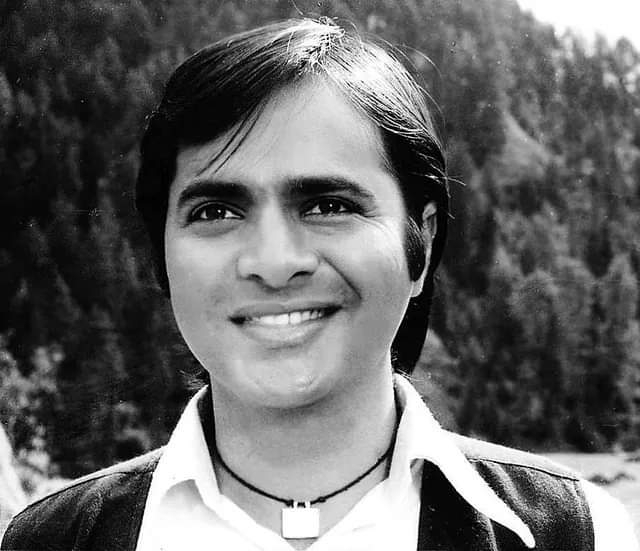Farooq Sheikh, born on March 25, 1948, was a remarkable figure in Indian cinema and television, leaving behind a legacy of unmatched performances and humanitarian contributions.
Farooq Sheikh, born on March 25, 1948, was a remarkable figure in Indian cinema and television, leaving behind a legacy of unmatched performances and humanitarian contributions. With his captivating presence and exceptional talent, Sheikh quickly became a beloved figure, embodying the essence of the versatile and nuanced characters he portrayed from 1973 to 1993 in films, and on television from 1988 to 2002. After a hiatus, he made a commendable return to the silver screen in 2008, continuing to grace audiences with his performances until his untimely demise on December 28, 2013.
Sheikh's journey in the world of cinema began with a modest supporting role in the 1973 film "Garam Hawa," where he shared the screen with Balraj Sahni. Despite the humble beginnings and a mere salary of 750 Rupees for his debut role, Sheikh's dedication and talent soon catapulted him into the limelight. He became an integral figure in Parallel Cinema, also known as the New Indian Cinema, contributing significantly to its evolution by working with acclaimed directors such as Satyajit Ray, Sai Paranjpye, Muzaffar Ali, Hrishikesh Mukherjee, and Ketan Mehta.
Among his numerous memorable roles were his performances in Satyajit Ray's "Shatranj Ke Khiladi" (1977), "Noorie" (1979), "Chashme Buddoor" (1981), "Umrao Jaan" (1981), "Bazaar" (1982), and "Maya Memsaab" (1993), to name a few. Sheikh's portrayal of complex characters across a spectrum of films showcased his versatility and his ability to engage audiences in a meaningful way. His on-screen pairing with Deepti Naval became one of the most cherished duos in Indian cinema, starring together in nine films, including "Saath Saath" and "Chashme Buddoor," their chemistry captivating audiences with each performance.
In addition to his illustrious film career, Sheikh's contributions to television and theatre were equally significant, enriching the cultural fabric of India. His role in the television serial "Kahkashan" and his performance in the play "Tumhari Amrita" alongside Shabana Azmi highlighted his dynamic range as an actor.
Farooq Sheikh's final cinematic journey saw him in the role of Bunny's father in "Yeh Jawaani Hai Deewani" (2013) and as the leading man in "Club 60" (2013), his last film before passing away. His departure left a void in the hearts of many, but his legacy endures through the timeless performances and the profound impact he made on Indian cinema and beyond. Farooq Sheikh was not just an actor but a beacon of excellence whose contributions to the arts will be remembered and cherished for generations to come.


